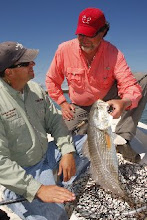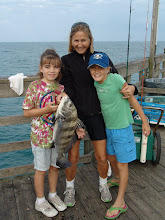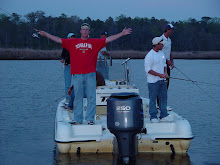
The following statement was delivered to each of the NC Marine Fisheries Commissioners and was read aloud during the public comment period at the recent MFC meeting in Wilmington, NC on August 11, 2010;
The Coastal Fisheries Reform Group (CFRG) is an association of concerned sports fishermen who support sound, scientific management of our marine fisheries for the benefit of the marine resource and all who enjoy these valuable assets of NC. Several issues need to be brought to the attention of the MFC at this time. The MFC is the state agency given the responsibility and duty by law to manage NC’s fisheries in an effective and fair manner so that our resources will not be depleted and all our fishermen will have opportunities now and into the future. When a fishery becomes depleted from overfishing or from any adverse condition, the MFC is obliged by law to take corrective and remedial action as soon as possible to begin the process of eliminating overfishing and restoring the fishery to a sustainable level at targeted healthy levels of abundance and growth.
This summer we learned that our speckled sea trout (SST) fishery, the most popular, sought after fish in our coastal waters, is depleted from years of overfishing. The current fishing regulations, both recreational and commercial, are not sufficient to begin recovery of the SST. We call upon the MFC to immediately develop and implement restrictive rules on the harvest of SST. DMF staff has already done the research on fishing mortality from all sources and can recommend the rules required to begin recovery of the SST. These restrictions must be designed to reduce fishing mortality to eliminate overfishing within two years as now required by state law. Furthermore, the rules must have at least a 50% chance of success of eliminating overfishing within two years and of bringing the stock to a sustainable level within ten years.
The total fishing mortality reduction required to eliminate overfishing in two years should be divided between recreational and commercial fishing based upon the historical ratio of annual recreational harvest of SST to the commercial harvest. Recreational limits on size and creel and possible season closures are tools that can be used. Commercial harvest can be controlled by Total Allowable Catch limits or by season closures in primary nursery areas in the months of December through February. The data is available and the problem is documented. Rules need to be in effective this fall, preferably by October 1.
Now is the time to protect our valuable SST fishery and rebuild the population for the future. The SST is a robust fish with high reproductive capacity. A little sacrifice now will pay huge dividends for the future.


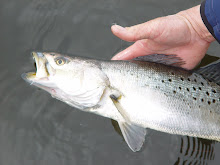



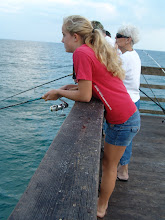

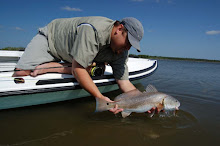.jpg)


